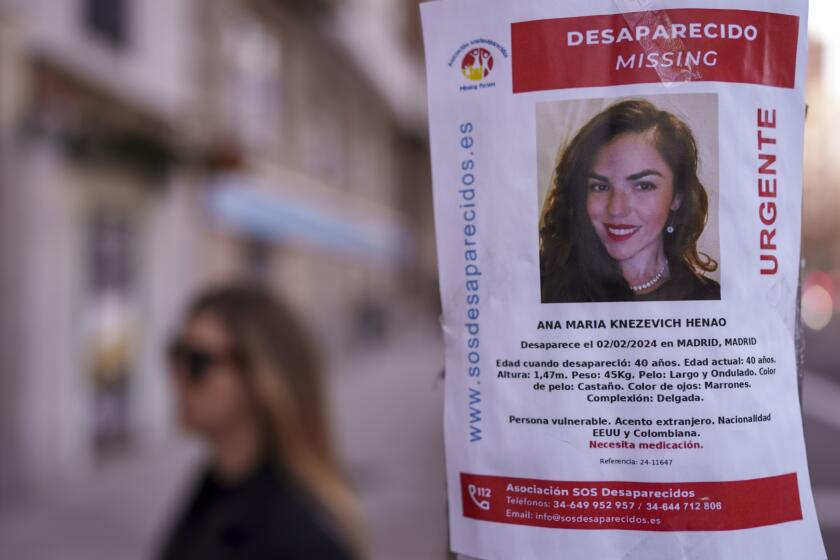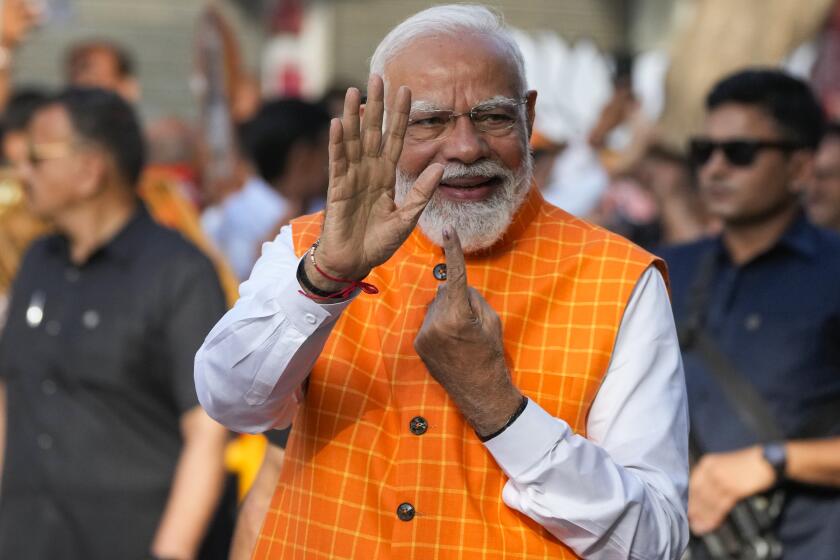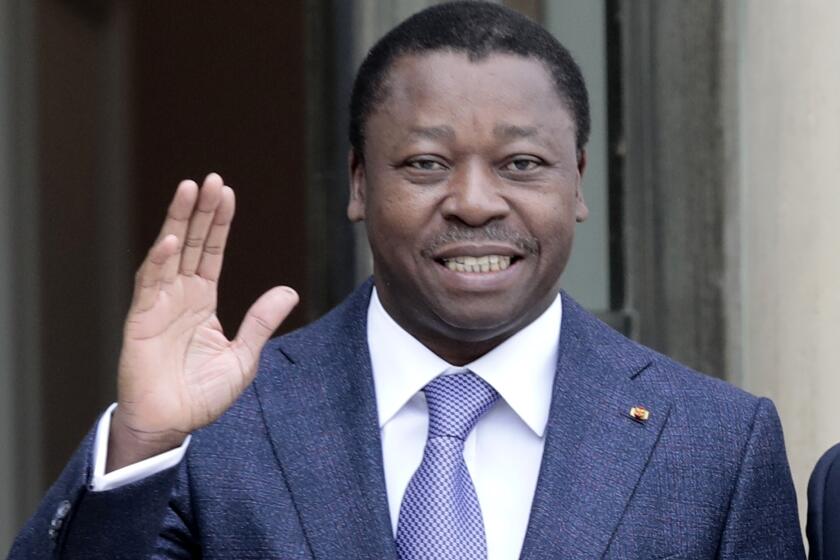New Probe Finds No Conspiracy in Iraq Aid Scandal : Inquiry: Clinton Administration agrees with Bush officials that Italian bank did not know of branch’s $5-billion loan to Baghdad. U.S. judge blasts report.
A senior Justice Department official told a federal judge Monday that an investigation has found no conspiracy by Italian bank officials to cover up $5 billion in loans that helped Iraq build its arsenal before the Gulf War.
John Hogan, a special assistant to Atty. Gen. Janet Reno, said officials at the Rome headquarters of Banca Nazionale del Lavoro were unaware that the bank’s tiny Atlanta office was loaning billions of dollars to Iraq from 1984 to 1989.
Hogan’s findings place the Clinton Administration squarely in line with the George Bush Administration in the controversial case--blaming the Atlanta office manager and low-level employees for the global scheme and dismissing allegations of a wider conspiracy.
The statement appears to be a significant step toward closing the door on the case, which last year was a focus of criticism by Democrats in Congress who accused the Bush Administration of trying to conceal its assistance to Iraq before the war.
But the claim by Hogan also set the tone for a day of sharp clashes between prosecutors and U.S. District Judge Marvin H. Shoob, who has been highly critical of the government’s handling of the case.
Shoob said intelligence documents and other evidence indicate that Italy, Britain and the United States may have conspired to permit BNL to make the loans as part of a Western policy to support Iraq in its war against Iran.
“This is not a simple fraud case but a much wider conspiracy,” Shoob said.
Near the end of the hearing, Shoob engaged in an unusual and lengthy debate with prosecutor Randy Chartash. The prosecutor argued forcefully that there is no credible evidence indicating that BNL officials in Rome knew of the hidden loans, and he disparaged the credibility of CIA reports that said bank officials did know.
Shoob countered that it was “absurd” to think that a “two-bit branch” in Atlanta could have loaned $5 billion without attracting the attention of BNL officials elsewhere as well as U.S. intelligence agencies.
The debate climaxed a daylong sentencing hearing for five defendants convicted of conspiracy and bank fraud in connection with the BNL case.
Shoob refused to send any of the former employees of the Atlanta branch to prison because he said he believes that they were “pawns” in a grander scheme. The stiffest sentence was six months of home detention for one defendant.
The alleged mastermind of the scheme, former bank manager Christopher P. Drogoul, is set to go on trial Sept. 8. But the judge in that case has already ruled that the defense cannot raise issues related to U.S. foreign policy toward Iraq.
The BNL case bedeviled the Bush Administration for months. Congressional investigators and others accused the Administration of ignoring evidence and conducting a sloppy investigation because the loans fit in with U.S. support for Iraq. The CIA and Justice Department also were criticized for mishandling evidence in the investigation.
Some of the Italian bank’s loans were guaranteed by the U.S. Department of Agriculture for Iraqi purchases of American grain and other commodities. Others were used by Iraq to buy technology and equipment for its military program, including improvements to its Scud missiles.
When Reno became attorney general last spring, she appointed Hogan as a special assistant and told him to get to the bottom of the matter. He spent four months leading the investigation of the disputed aspects of the case.
“It was our conclusion independently, and it is the conclusion of the Department of Justice, that the people in Atlanta were not . . . working at the direction of, with the knowledge of, or under the auspices or approval of the bank in Rome,” Hogan said.
Shoob, who has handled the case for three years, challenged the findings. He said they ignored intelligence documents, White House telephone calls to one of the prosecutors, the involvement of a British spy with BNL and a host of other suspicious occurrences.
“I would conclude that only in never-never land would a combination of circumstances such as I have seen indicate that all this happened by chance,” he said.
More to Read
Start your day right
Sign up for Essential California for news, features and recommendations from the L.A. Times and beyond in your inbox six days a week.
You may occasionally receive promotional content from the Los Angeles Times.






